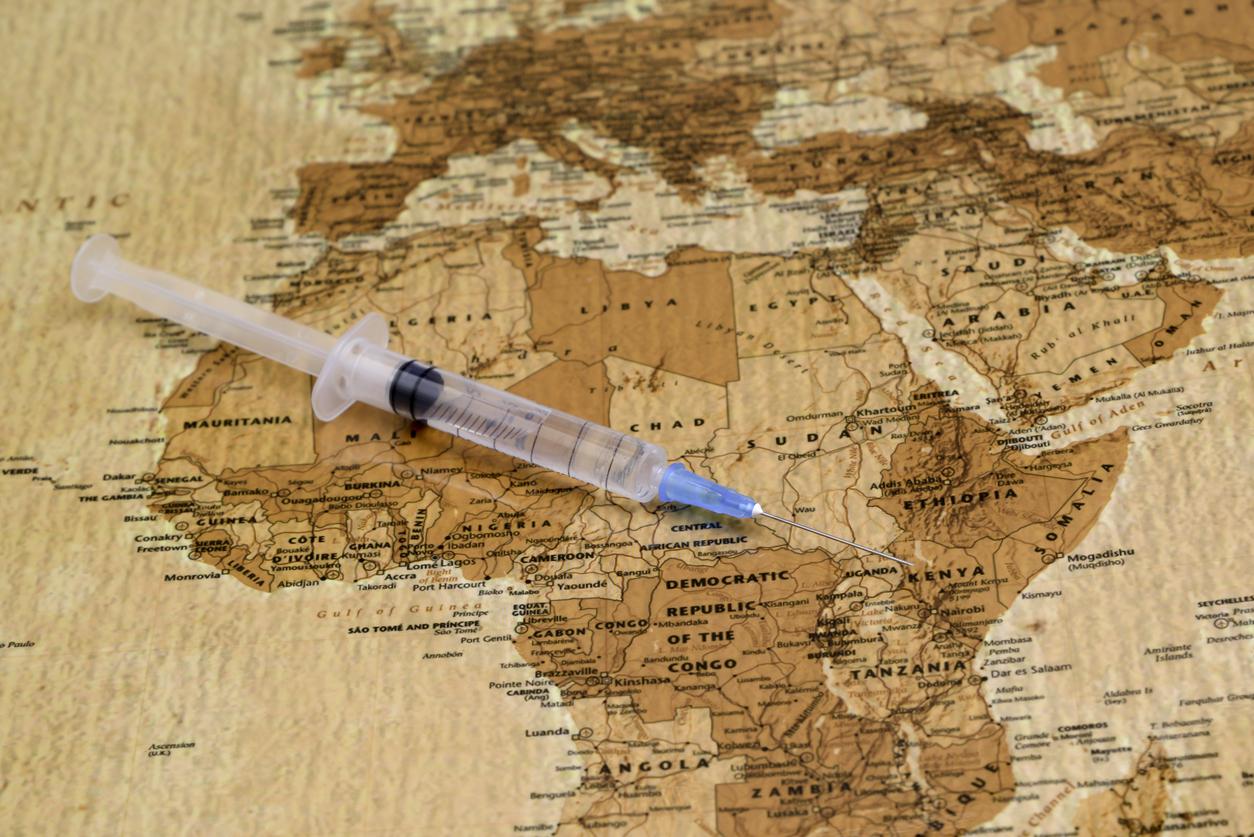Confirming initial findings from the summer of 2015, an international group of researchers a few days ago reported high effectiveness in their final analysis of data from the VSV-EBOV ring vaccination trial in Guinea, as a team from China reported results from a phase 2 trial of an adenovirus-based vaccine.
Though VSV-EBOV is furthest along in development, with steps under way to make it available for use in a future outbreak, work continues on a host of other vaccine candidates. Experts say different vaccines might be useful for different purposes, such as a quick-acting one that can help tamp down outbreaks and a long-lasting one for protecting frontline healthcare workers.
VSV EBOV: more evidence of high efficacy
VSV-EBOV uses an Ebola protein spliced into a vesicular stomatitis virus (VSV); it was developed in Canada and licensed by NewLink Genetics and Merck. Researchers from the World Health Organization (WHO), Guinea's health ministry, Doctors Without Borders, the Norwegian Institute of Public Health, and other partners reported their findings in a Dec 22 early online edition of The Lancet. Following their initial promising results, all rings were offered the vaccine immediately rather than waiting 3 weeks, and researchers opened the trial to anyone older than 6 years of age.
The final analysis included 11,841 people in Guinea who in 2015 were part of 117 clusters or rings, each consisting of about 80 people.
Of 5,837 people who received one dose of the vaccine, no Ebola cases occurred 10 or more days after vaccination, which echoed the initial findings. In those who didn't get the vaccine, there were 23 cases of Ebola.
Marie-Paule Kieny, PhD, the WHO's assistant director-general for health systems and innovation and the study's lead author, said in a Dec 23 statement, "While these compelling results come too late for those who lost their lives during West Africa's Ebola epidemic, they show that when the next Ebola outbreak hits, we will not be defenseless."
The group said the findings also suggest indirect protection for the unvaccinated group, though the trial wasn't designed to assess the effect.
Merck has submitted the vaccine for WHO emergency-use assessment, which if approved would make it available for use before formal licensure. Earlier this year GAVI, the Vaccine Alliance, provided $5 million toward vaccine procurement once it is approved and recommended, and Merck has committed to make 300,000 doses available for emergency use until full licensure is in place.
The WHO said additional studies are under way to gauge VSV-EBOV safety in children and other vulnerable groups such as those with HIV.
In an editorial in the same Lancet issue, Thomas Geisbert, PhD, an expert on hemorrhagic fever viruses with the University of Texas Medical Branch at Galveston, wrote that VSV-EBOV seems to be highly effective and safe for use in an outbreak setting but noted that some questions remain, such as durability of protection and whether VSV-based Ebola vaccine could be further attenuated to reduce the number of adverse events seen in phase 1 trials.
Ad5-EBOV protective at lower dose, but may require booster
In the second study, researchers tested the safety and immunogenicity of a recombinant adenovirus type-5 vector-based Ebola vaccine (Ad5-EBOV) developed by Chinese researchers. The phase 2 trial took place in adults at a single center in Freetown, Sierra Leone, in October 2015.
The randomized, double-blind, placebo-controlled trial included 500 people, of whom 250 got the high-dose version, 125 the low-dose vaccine, and 125 placebo.
After following the group for 6 months after vaccination, the team found mostly mild, self-limiting reactions that were slightly more frequent in the high-dose group; injection-site reactions were similar between the two dosage groups. Antibodies peaked at day 28, declining by 85% 6 months after injection.
The researchers concluded that the vaccine was safe and immunogenic, with the lower dose optimal. However, they said the short duration of the antibody response suggests that a prime-boost strategy for immunization might be useful.
In a related editorial in the same Lancet issue, two experts from the Netherlands, Martin Grobusch, MD, PhD, and Abraham Goorhuis, MD, PhD, wrote that although the study was well conducted and overcame many problems with study design, concerns remain about immunogenicity and the protection duration, especially in a future outbreak setting in Africa. They noted that the African study group showed lower antibody production than participants in the phase 1 trial in China, a pattern seen with other adenovirus vaccines and the VSV vaccine.
Grobusch and Goorhuis also wondered if high preexisting immunity against the Ad5 vector that the Chinese researchers saw could attenuate humoral and cellular immunogenicity. Though the team saw a satisfactory immune response on day 28, they said, "Whether pre-existing immunity contributed to the rapid decline in antibody titres recorded at day 168, and in what way it might negatively affect the ability to administer a booster vaccine, is unclear."
They also commented that deeper insight into long-term immune response is needed and that prime-boost strategies will probably be needed to protect people during prolonged outbreaks, such as the one that occurred in West Africa.
See also:
Dec 22 Lancet abstract on VSV-EBOV effectiveness
Dec 22 related Lancet editorial
Dec 23 WHO press release
Dec 22 Lancet abstract on adenovirus Ebola vaccine trial
Dec 22 related Lancet editorial





















